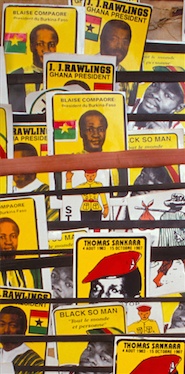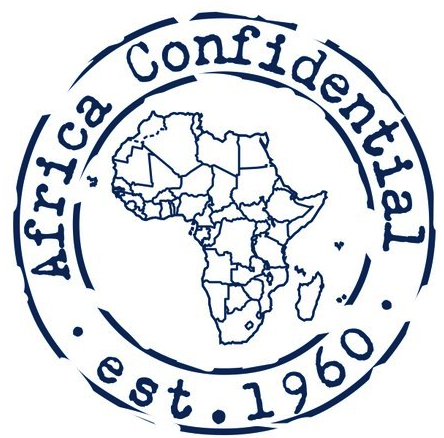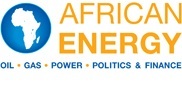The latest issue of Africa Confidential is now available online to all paid subscribers.
If you don't have a subscription, you are welcome to purchase individual articles, or pre-pay for bundles of articles and make huge savings on the price of an individual article, or sign up for a full subscription.
All annual subscribers have access to our extensive archive. You'll find our subscription options here. | WEST AFRICA

Firefighters against an inferno Popular anger at unemployment, political corruption and crony capitalism is now targeting governments across the region
Searching to sum up ousted the 27-year rule of Burkinabè ex-President Blaise Compaoré, as the opposition gathered on the streets in Ouagadougou last week, a French political analyst settled for 'un pompier pyromane', a firefighter who is also an arsonist. He went on to to explain how Compaoré, with the financial and military support of Libya's Colonel Moammar el Gadaffi, had backed rebellions in Côte d'Ivoire, Guinea, Liberia and Sierra Leone, and had, at best, highly ambiguous relations with insurgents in Mali and Niger. Keeping a discreet distance from the heart of these conflicts, Compaoré would then offer his good offices in securing a 'negotiated peace'. Accordingly, President Ibrahim Boubacar Keïta's government in Bamako has been openly celebrating the downfall of Compaoré. Others, such as the widow of murdered Burkinabè leader Thomas Sankara and human rights activists in Liberia, would like to see Compaoré stand trial for murder and war crimes.
Read this article for FREE now |
WEST AFRICA
Stepping up the fight against Ebola The overall picture is improving in rural areas but the epidemic could be worsening in the cities
As November began, some cautious optimism was evident in Liberia, the country most affected by Ebola. The disease has not only caused an unprecedented health crisis in the neglected rural areas but quickly became a major governance and security challenge, too. Veteran Defence Minister Brownie Samukai was telling the United Nations Security Council of 'an existential crisis' in early September (AC Vol 47 No 2, In cabinet). By the end of October, hope was tentatively emerging.
Read this article NOW |
BURKINA FASO
Pressure mounts on Zida The public is unhappy with Compaoré's replacement by one of his Praetorians and many fear for the fate of their revolution
In the immediate aftermath of the overthrow of President Blaise Compaoré last week, no one knew who was in charge. Gradually, towards the end of the country's most turbulent week ever, stability coalesced around the unlikely figure of Lieutenant Colonel Yacouba Isaac Zida, number two in the presidential guard, the Régiment de la sécurité présidentielle (RSP). Virtually unknown to the public, he sided with the protestors early on and it was he who, on 31 October, declared the constitution suspended. Yet the key civil society activists who claim parentage of this revolution see Zida, 49, as an unwelcome arriviste.
Read this article NOW |
ZAMBIA
Fights before the funeral The infighting began as soon as Michael Sata died and Guy Scott is trying to hold the ring between the different factions
Acting President Guy Scott is finding out just how difficult the management of the governing Patriotic Front can be. On 3 November he was obliged to reinstate Edgar Lungu, a powerful contender for the PF presidential nomination, just 24 hours after sacking him as PF Secretary General. He had no alternative if the fighting in some Lusaka suburbs between pro-Lungu and other PF youths was to stop. Scott had moved against Lungu for violating the ban on infighting ahead of Michael Sata's funeral, due on 11 November, and had replaced him with the Chipili MP Davies Mwila, who is close to Scott and the former PF Secretary General Wynter Kabimba.
Read this article NOW |
KENYA
An executive not executing Alarm grows over the government's failure to deliver and to get organised amidst ever more visible signs of cronyism
While confusion reigns in Kenya's public service, the patterns of governance under President Uhuru Kenyatta are becoming clearer. Squabbling between cabinet secretaries and the heads of ministries has produced a logjam over budgets with Kenyatta and his deputy William Ruto constantly intervening to make the system function.The cabinet is now appointed from outside the legislature in a departure from the Westminster system Kenya had followed since Independence and in line with the new constitution. As in the United States, the President is authorised to nominate experienced candidates to be interviewed in public hearings and confirmed by Parliament (AC Vol 54 No 9, Rise of the professionals).
Read this article NOW |
ZIMBABWE
Party strife draws in white businesses Everyone – without exception – has to pick a side
As the contest intensifies for the leadership of the Zimbabwe African National Union-Patriotic Front, Justice Minister Emmerson Mnangagwa appears to have put clear water between himself and his rival, Vice-President Joice Mujuru. Yet as Grace Mugabe gradually eclipses Mujuru, ZANU-PF's two major factions are pressuring white Zimbabweans to declare for one side or the other. The situation has become 'invidious for white-owned businesses', said one white business person. The government 'impoverished the whites when they confiscated their land and they still turn to them to fund their nefarious battles. And there are consequences for supporting a faction that might turn out to be a loser,' said the source in Harare. Read this article NOW |
MOZAMBIQUE
Nyusi's rocky road The new President faces a stronger opposition and resentment over Frelimo's electoral fraud that could well persist
President Filipe Nyusi, the formally declared victor of October's presidential poll with 57% of the valid votes, has steep hills to climb. He needs to restore public confidence in the Frente de Libertação de Moçambique and also to win the support of disaffected Frelimo party members for his leadership. Now, however, the main priority must be to quell the continuing anger among the public and the opposition parties over Frelimo's electoral fraud. Read this article NOW |
GABON
Bashing Bongo
Seasoned investigative journalist Pierre Péan has put the cat among the pigeons yet again with a stream of sensational claims about President Ali Ben Bongo Ondimba and his family. The book, Nouvelles affaires africaines: mensonges et pillages au Gabon (New African affairs: lies and plundering in Gabon), is the talk of Libreville and has predictably infuriated its target.
Read this article NOW |
SAO TOME & PRINCIPE
Trovoada's return
Former Prime Minister Patrice Trovoada has crowned an unlikely comeback with an emphatic victory in the 12 October legislative elections. One thing hasn't changed, however: his strained relationship with President Manuel Pinto da Costa (AC Vol 54 No 21, 'Pirates' free captains). Trovoada's Acção Democrática Independente (ADI) turned down the President's request to name a new prime minister and will not do so until after 22 November. Read this article NOW |
CONGO-KINSHASA | BRITAIN
Don't look now
The High Court in London ruled late last month that the hearing on the law firm Dechert's disputed bill to Eurasian Natural Resources Corporation should be held behind closed doors. ENRC instructed Dechert as its operations in Africa and Kazakhstan came under investigation by Britain's Serious Fraud Office but sacked the firm in March 2013 after it presented a £16 million (US$25 mn.) bill. Read this article NOW |
SOUTH AFRICA
Splinter injuries
It is becoming clear what kind of workers' party will emerge to challenge South Africa's political establishment when the once-mighty, 2.2 million-member Congress of South African Trade Unions splits up, probably as early as next year. Nine Cosatu affiliates have rallied around the militant National Union of Metalworkers of South Africa as a legal battle looms to prevent NUMSA's expulsion from Cosatu. Read this article NOW |
BURKINA FASO
The warning from Ouagadougou The overthrow of Blaise Compaoré sends a powerful message from the street to other leaders planning to extend their rule
One of Africa's canniest operators, Blaise Compaoré, was forced out of power on 31 October as over 100,000 protestors in Ouagadougou and Bobo-Dioulasso demanded his exit. Unable to trust anyone to protect him from prosecution after 27 years of corrupt and brutal rule, Compaoré had gambled on his ability to persuade the political class and his presidential guard to back him for another term in office. Read this article NOW |
BOTSWANA BDP squeaks back in Despite a hint of dirty tricks the ruling party won the election fairly, yet with a reduced majority
Lieutenant General Seretse Khama Ian Khama begins his second five-year term of office when Chief Justice Maruping Dibotelo swears him in as President today. The Botswana Democratic Party took 37 of the 63 seats in its eleventh successive election win. The contest was expected to be tighter but the number of BDP MPs fell from 45 at the last poll in 2009, slicing its majority from 33 to 17. The governing party's share of the vote looks to have fallen below 50% for the first time. Four further MPs will be elected by Parliament and the President and Attorney General also sit in the chamber. Read this article NOW | |
| | | | |
Have you created your Africa Confidential account yet?
It only takes a few seconds to register your name and choose your username and password here.
You can then tailor the emails we send you, choose to be notified every time we publish a story on a country that interests you, and purchase any articles you want to read.
If you aren't ready to subscribe you can pre-pay for bundles of 5, 10 or 20 articles and make huge savings on the price of an individual article.
|  | | | | BLUE LINES | | THE INSIDE VIEW |
Last week's street protests in Burkina Faso, which toppled President Blaise Compaoré, recall the Tunisian demonstrations which launched the rebellions across north-east Africa four years ago. There are some clear parallels. Compaoré, like Tunisia's President Zine el Abidine Ben Ali and Egypt's Mohamed Hosni Mubarak, were seen as political fixtures, running a crony capitalist network while servicing the security needs of Western governments. Yet they were chronically unaware of changing political realities: how tougher local and international economic conditions were driving up unemployment and hostility to the cushioned ruling elite. Mobile telephones and the internet outmanoeuvred state censors as bloggers and tweeters broadcast their criticisms of the regimes.
All three faced a tide of public anger. Brought together by old-style political campaigning combined with mobiles and social media, tens of thousands of people hit the streets, overcoming their fear of soldiers and the police. Sometimes grudgingly, sometimes with a fellow feeling for the demonstrators, soldiers stood back and lowered their guns. As in Tunisia and Egypt, in Burkina Faso it was the securocrats who struck the last blow, pushing their leader through the door.
Twenty five years ago, the fall of the Berlin Wall and the demise of the Soviet Union prompted popular uprisings against one-party states in Africa. Demands for national conferences to draw up new constitutions quickly morphed into movements to overthrow autocrats such as Mathieu Kérékou, Gnassingbé Eyadéma, Denis Sassou-Nguesso and Mobutu Seso Seko. Today, almost every African state runs a form of competitive elections. Yet multipartyism has failed to hold governments to account. Instead, veteran leaders have become expert at using a show of democracy to perpetuate their rule. After Compaoré's fall, their success can no longer be taken for granted.
| | | | | |  |  | | Search our 15-year online archive | | Alternatively, contact us to find out about access to over 50 years of the world's best fortnightly newsletter on African politics. |  |
| | | Africa Confidential In The News
Rand Daily Mail, 7 November 2014
The glorious rise of Grace Mugabe
By Justice Malala
'This is how that venerable organ, Africa Confidential, reported on the launch of her campaign: "Starting at her Mazowe estate with an assembly of fundamentalist Christian pastors and Apostolic prophets, she confided that Mugabe was God's gift to Zimbabwe and she was God's gift to Mugabe. The corpulent conclave dutifully responded with 'Hallelujahs' and 'Praise the Lords' but their real enthusiasm seemed to be for a chorus of 'Give us more building land.'"' iOL, 8 July 2014
Kenyatta's game a risky one
By Peter Fabricius
'The security services reportedly ignored intelligence warnings of the Mpeketoni attacks and the journal Africa Confidential writes there have been hints of collusion between the intelligence services and al-Shabaab.' Radio Dabanga, 6 July 2014
'Sudan's military industry expanding': Small Arms Survey
'The Safat Aviation complex, 20 km north of Khartoum in Karari, opened in 2005. It includes centres and factories specialised in aircraft maintenance and the installation of aircraft parts. According to Africa Confidential, Safat also manufactures unmanned aerial vehicles with Iranian assistance.'
BBC News, 8 May 2014
Have Boko Haram over-reached themselves?
By Frank Gardner
'It is clear then, that unless – and this is extremely unlikely – this is a macabre plan ordered by al-Qaeda's leaders that has backfired spectacularly, Boko Haram are acting independently and following their own local agenda. But Gill Lusk of the Africa Confidential newsletter argues that it has not necessarily been a disaster for the group.
Although kidnapping innocent schoolgirls might look counter-productive, the aim of al-Qaeda linked movements is not primarily to be popular, she says, "but to further their politico-religious aims through terrorism, as we saw when Boko Haram attacked the United Nations headquarters in the Nigerian capital, Abuja," in 2011.
"The school attack has given the jihadist militia worldwide publicity and from its point of view, that is a huge success," Ms Lusk told the BBC.' SW Radio Africa, 2 April 2014
Corruption riddled ZMDC gets new board
By Alex Bell
'[I]n November last year, a report by the news and analysis website Africa Confidential named the former MMCZ board chair, Chris Mutsvangwa, as being a key architect of arms-for-minerals deals with Russia and China. Mutsvangwa, who was the former Zimbabwe ambassador to China, is now the Deputy Minister of Foreign Affairs.' Pambazuka News, 19 March 2014
Khartoum: Really out of the terrorism business?
By Eric Reeves
"The broadest and most authoritative picture was provided by Africa Confidential, and much of what was said over a decade ago remains true today: 'The N[ational I[slamic] F[ront] political and security apparatus is intact, as are the NIF's and the international Islamists' control of the economy. Many of those running terrorist training are still in security and ministerial jobs. So, well informed Sudanese doubt that the NIF will hand much of value to U.S. investigators. The NIF is as Islamist as its friends Usama and the Taliban. This regime believes in what it does. Any concession is intended only to protect the greater cause. Secondly, any major betrayal would be suicidal, just as dangerous as holding free elections.' (Africa Confidential, Volume 42, No. 19, September 28, 2001)" BBC Radio 4 – The World Tonight, 20 February 2014
Goodluck Jonathan suspends Central Bank of Nigeria Governr, Lamido Sanusi
Patrick Smith talks to David Eades
'Many people see [Lamido Sanusi] in Nigeria as something of a crusader against corruption. so there's a big gap between the perceptions put forward by the Presidency and the perceptions of many people in Nigeria and most of the outside world.' (at 36:05) | | |













No comments:
Post a Comment